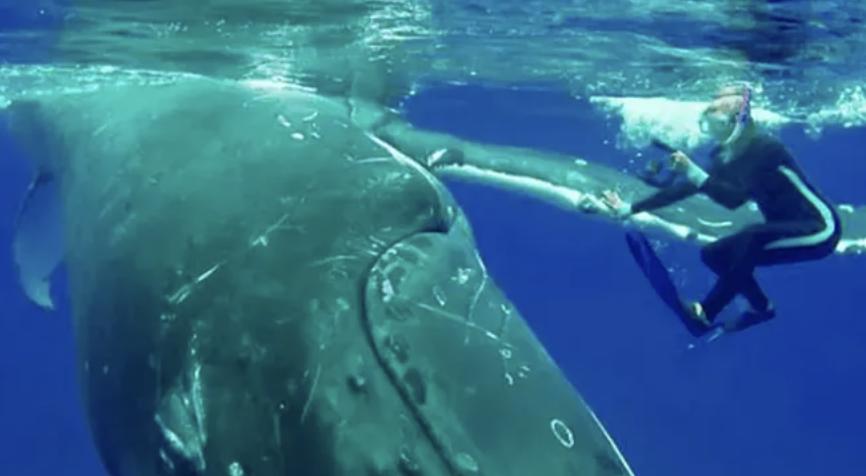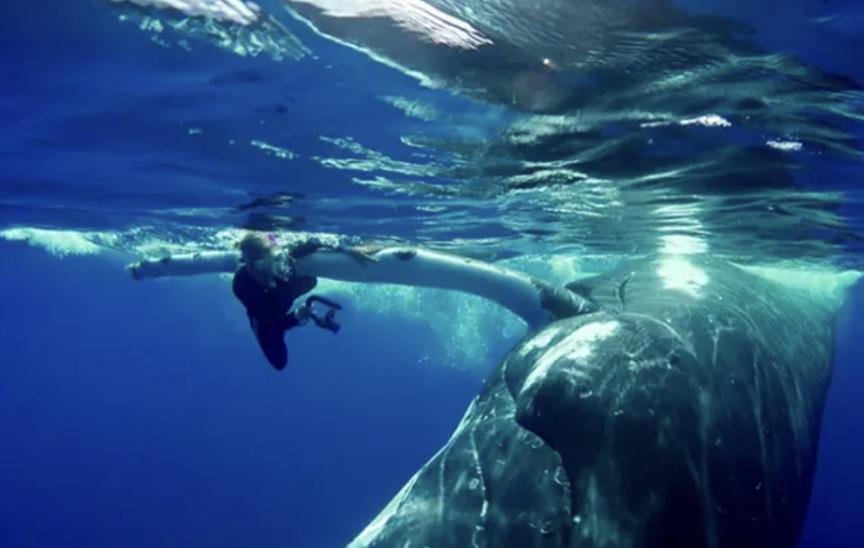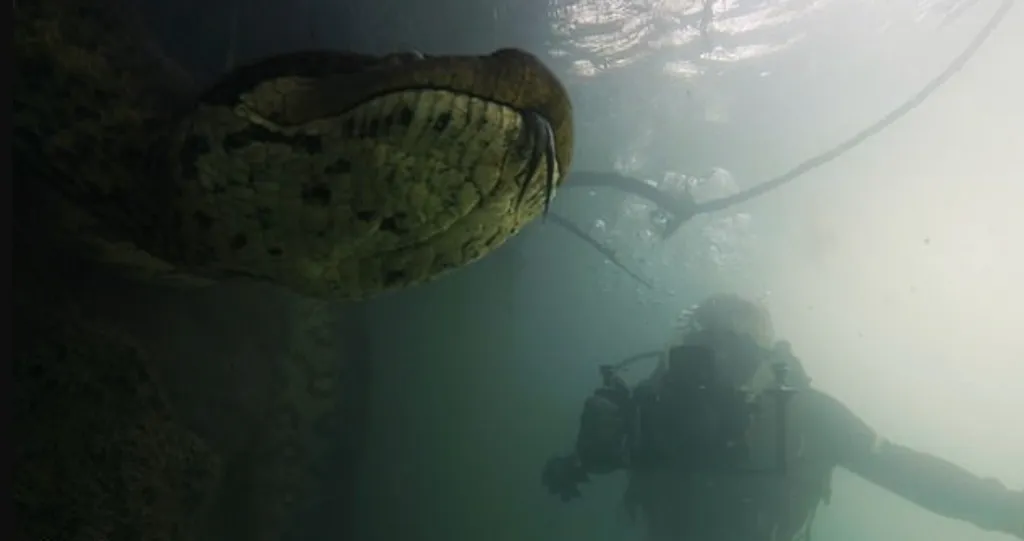
Nan Hauser, 63, has been studying cetaceans in their natural environment for more than thirty years. The biologist heads the Center for Research and Conservation of Cetaceans in New Zealand, and the main objects of study are humpback whales (humpbacks).
That day, together with a group of colleagues, Nan went deep into the waters of the Cook Islands, scientists studied the migration of whales in the Pacific Ocean. The biologist was underwater, and a group of employees of the Center watched what was happening with the help of drones.
In all her many years of diving practice, the biologist has never found herself in a dangerous situation.
For the first time in her life, a woman experienced acute panic when she saw a thirty-ton whale carcass rising rapidly towards her through the water column. The male humpback left her no chance when attacking. There were several meters between the scientist and the ship with her colleagues and there was no need to count on help.

The only thing left for Nan was to calm down and wait for the development of events, since usually, whales do not harm divers.
But this male did not change the direction and came close to the diver. Kit began to push the woman with his nose, ducked under her, his behavior was strange and dangerous because Nan did not have much oxygen left. In addition, another humpback swimming nearby began to actively beat the water with a massive tail. If Nan had been hit, it would have ended up with at least fractures.
The longest ten minutes in her life ended unexpectedly – the whale pushed the woman to the surface with a powerful movement not far from the ship with people. The stunned faces of the scientists who hastily picked up Nan reflected all degrees of amazement and relief at the same time.

As it turned out later, it was not the actions of a pair of humpbacks that scared people at all. It turns out that an unsuspecting diver was being approached by a group of ferocious tiger sharks that repeatedly attacked swimmers. Their intentions were quite obvious and, at some point, the scientists turned off the cameras so as not to shoot the bloody scene. They simply did not have time to help a colleague, and then, unexpectedly, whales came to the researcher’s aid.





